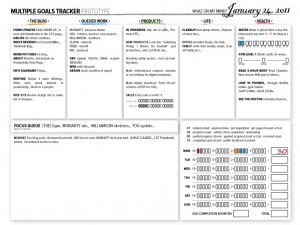(last edited on March 16, 2017 at 5:32 pm)
At this very moment, which is 8:40PM on a Friday night, I am hungry. For food. However, having had a rather full-yet-unsatisfying day, I am also feeling quite lazy. It’s also one of the first feel-it-in-your-bones cold days, so I’m not feeling particularly motivated. And yet, it’s the awareness of this miserable state of being hungry, lazy, AND cold that is triggering the desire to overcome my sluggishness and do (or at least eat) something amazing. In this off-the-cuff essay, I describe the feeling of NOT THINKING as a kind of calming, recentering experiment.
Thought Loops
Recognizing that I was entering a circular state of thinking, I managed to get off the couch and get to my desktop computer so I could start writing this blog post. By writing about it, I fuzzily thought, I can interrupt the flat spinning loop of:
- I’m Hungry! So I should think of something to eat.
- I’m Lazy! And I can’t think of anything to eat that’s worth the effort!
- And it’s Cold! I need to find a jacket, and it’s warm here on the couch under my blanket!
- But this is Lame! I should be able to overcome this!
- I’m Hungry!
And so I have. At least I’m writing and thinking about something other than my hunger (which is still present) and coldness (which is also still present). I’m not really doing anything particularly epic, so laziness has not been entirely dispelled. I would say that I am, at best, at least warming up to something that I’m yet to discover.
Processing Thoughts and Processing the World
A recent experiment I’ve been doing is to change the way I experience the world. As an “intuitive” in the MBTI sense sense, the way I experience the world is through processing my sensory inputs—what I see and hear—into processed nuggets of meaning. It’s one step removed from experiencing the world immediately; in other words, “The world is how I think about it” as opposed to purely experiencing the world through my senses.
A few mornings ago, I found myself lying in bed stuck in a similar thought loop:
- I’m sleepy! I should get up and start the day!
- But I don’t have to! There are no deadlines until tomorrow.
- And it’s Cold! I have to go all the way to the basement to get something warm to wear, and it’s already warm right here!
- This is lame!
- I’m sleepy!
I eventually had the notion that I was giving energy to the thought loop merely by thinking about it. So, knowing I am a very verbal person, I tried turning off my verbal processing. My thought loops tend to involve certain concepts (hungry, sleepy, cold) that are structured into language like “I am”, “I feel”, and “I want” that are delicately shaded with fancier words and remembered experiences. While this does make it easy for me to organize and write-down my thoughts as I thinki them, in this case their powers are being applied in a useless way. It was like I was in the room with a bunch of bickering children, and by listening to them without action I was empowering their behavior. Highly annoying.
To tune-out my thoughts, I turned off words. When I sensed a word starting to form, or when I sensed a thought like “I feel” or “I need” or “I think” burbling up, I immediately let it fade away again. Very similar to trying to wake up, and then nodding off to sleep for a few minutes more, an apathy to words that I normally do not have. It’s the mental equivalent of telling my inner monologue to JUST BE QUIET and SIT STILL for five minutes.
The result? Remarkable things seem to happen. After a minute or so of sitting still, making sure that verbal constructs don’t arise, quieter less-assertive thoughts arise:
- I notice the room I’m in, in greater detail. Everything is familiar and at the same time it is new.
- I take note sensory inputs for what they are, not for what they are categorized as, or what they might mean to me. Every sensory input becomes poignant.
- Opinions slip away
- I achieve a sort of calmness.
- Actions become responses.
I’m not sure if what I’m doing is meditation, or what it might be labeled in other disciplines. It’s really interesting, though, because it gives me ready access to a different mental experience model. What is it like to NOT always be processing the world into chunks for dissection? This exercise of not-verbalizing / not-thinking, a style of existing that I would usually think of as a death, actually seems quite liberating in small doses. For me, it seems to help me recenter by finding a sanctuary of silence inside me, where I can sit in the meadow of my own mind and quell the rush of thoughts that sweep me from place to place.
There are two stages of I’ve noticed when I transition from my normal neurotic super-processing self to this place of quiet.
- The first stage occurs when I take the “me” out of my thoughts. I remove the I from the sentences that are in my head, and the talk is no longer about me. Suddenly I can experience the world more freely, unencumbered by the tremendous amount of processing overhead spent relating what I see to what I think/feel. My mind is still tagging what I see with words, but they are simpler statements that don’t include myself in them; “Apple” versus “I like apples, and I should eat more of them. Why don’t I eat more of them? They are delicious!”
The second stage occurs when I am able to stop the verbalization of what I see completely. I no longer think “that is an apple”, instead just recognizing it for what it is. What seems to happen next, which I find very interesting, is that the unvocalized part of myself takes over. The apple might be moved, eaten, washed, appreciated, noted…but it is not judged. I see it differently.
I don’t know what it all means, but I thought I’d share the experiment. I just returned from a wander to the kitchen, and have formulated a plan for dinner. It involves some quiet time and letting that non-verbal part of me make us some dinner.





5 Comments
I think what you’re doing would be described by mindfullness meditators as the practice of “letting go.” It’s something that can help reduce the degree of reactivity we have in our lives.
Hi David, cool stuff. What you wrote reminds me a bit about Falun Dafa. Check out their website and the Zhuan Falun book (all the books are free in electronic form (www.falundafa.org). That’s what I use to recenter and find my sanctuary.
Also have you seen this http://www.noisli.com? For a long time I was looking for something that would substitute music (for focus). I tried http://www.focusatwill.com but I like the nature sounds from noisli much better. I guess it’s a preference thing.
Sorry for the long comment… (:
Sounds like you’ve made yourself a nice new routine to change habits. Nice and meditative too. It reminds me of some of the advice in Charles Duhigg’s book, “The Power of Habit: Why We Do What We Do In Life and Business”. You don’t stop a habit, you redesign it.
Now you’ve found a place to let go, enjoy your quiet time!
I’m 27 years old and developed overpowering thought loops from childhood trauma. They were made worse by trauma in my adulthood. As far as I can remember, I’ve categorized and dissected the world from minutia to political meta-narratives. I enjoy seeing how even the smallest things fit together into something larger, and then seeing how those larger parts interact.
Through therapy, my thought loops have been turned down so much that I actually freak out. I don’t know what to do with such a quiet brain. It’s quite scary, even though for years I thought I wanted them gone.
Thanks for providing a new perspective. It’s interesting that someone else can verbalize some of what I’ve lived with at least 2/3 of my life.
Hey Anonymous, glad that my experience added another perspective to your collection! I still struggle with this today, but I am somewhat better able to cope with it by (1) not beating myself up over it and (2) being able to catch myself in the loop more frequently.
There are times, I think, when the thought loop is a very powerful tool for doing my best work. I guess I am learning how to turn it on and off, and how not to hurt myself when wielding it.